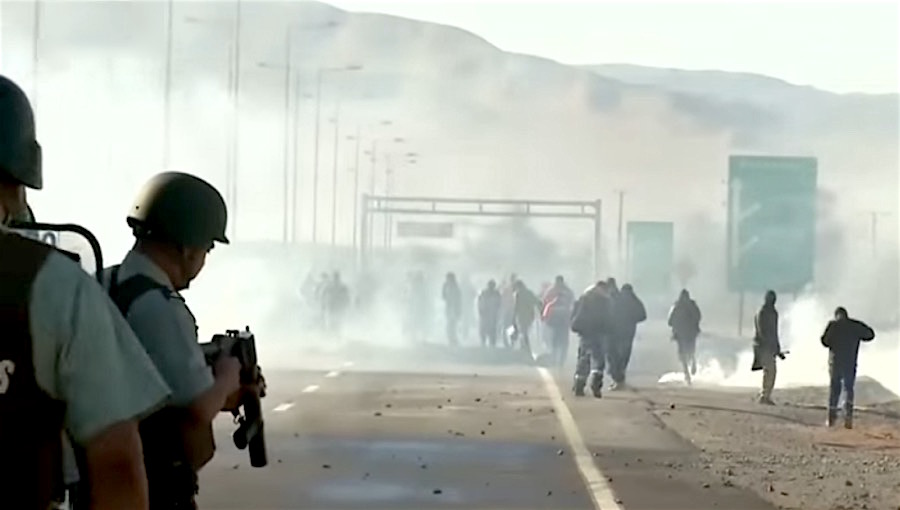Strike at BHP’s Escondida mine takes toll on Chile’s copper output, GDP

An already three-week-long strike at BHP Billiton’s (ASX, NYSE:BHP) (LON:BLT) Escondida mine in Chile, the world’s biggest copper mine, dragged down the country’s GDP by 1% in February and is expected to significantly affect the nation’s annual output, authorities have warned.
With every passing day Escondida remains inactive, Chile loses 3,470 tonnes of copper output, authorities warn.
Chile’s Mining Minister Aurora Williams said the country’s copper production is predicted to have fallen by 12% last month when compared to February 2016, mostly due to the labour action at the massive mine.
“With every passing day Escondida remains inactive, Chile loses 3,470 tonnes of copper output,” she said according to local newspaper La Tercera (in Spanish). Williams added that while Escondida was forecast to produce nearly 1.1 million tonnes of the metal this year, “after 25 days (of strike) we can expect lower production already by some 95,000 to 100,000 tonnes, which naturally will go on rising while the strike lasts.”
Chile is the world’s biggest copper producer, and sales of the metal make up for about 60% its export earnings.
The country has lost some of its appeal to mining investors in recent months. According to the latest annual global survey of mining executives released this week by the Fraser Institute, the nation tumbled in the rankings from the 11th place it held in 2015 to the 39th position and currently ranks below Peru, which occupies the 28th place.
While it’s difficult to single out what caused Chile’s big drop in the ranking, Taylor Jackson, senior policy analyst with the Fraser Institute and co-author of the study, noted that respondents seemed concerned about the country’s tougher and more uncertain environment protection rules. They also appeared more critical of Chile’s geological potential.
{{ commodity.name }}
{{ post.title }}
{{ post.date }}




Comments